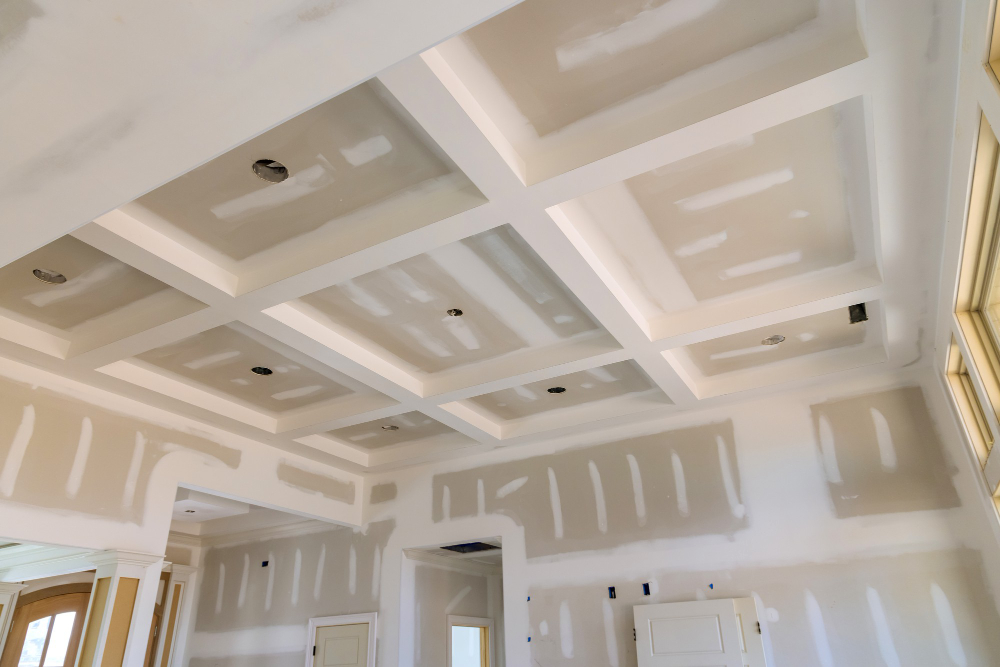Renovating a home is a significant endeavor that transforms living spaces into personalized sanctuaries. From the initial spark of inspiration to the final coat of paint, the renovation process is a journey marked by careful planning and meticulous execution. It begins with envisioning the desired changes—whether it’s updating a kitchen to accommodate modern culinary needs or transforming a dated bathroom into a spa-like retreat. Once the vision is clear, the planning stage commences, involving detailed assessments of budgets, timelines, and necessary permits. This phase is crucial for setting realistic expectations and ensuring that every aspect of the project aligns with the homeowner’s goals. From there, skilled professionals bring the plans to life, navigating challenges and making adjustments as needed to achieve the desired outcome. Ultimately, the renovation process is not just about physical changes but also about creating spaces that enhance comfort, functionality, and aesthetic appeal, turning a house into a dream home.
Choosing the Right Contractor: Essential Steps for Your Renovation Project

Embarking on a renovation project is an exciting yet daunting endeavor. One of the most crucial decisions you’ll make is choosing the right contractor. A reliable and skilled contractor can turn your vision into reality, ensuring your project is completed on time, within budget, and to your satisfaction. Here’s a detailed guide on how to select the perfect contractor for your renovation needs.
Define Your Project Needs
Before you start searching for contractors, clearly define your renovation goals. Are you remodeling a kitchen, adding a bathroom, or renovating your entire home? Understanding the scope of your project will help you communicate effectively with potential contractors and evaluate their suitability for the job.
Ask for Recommendations
Seek recommendations from friends, family, and neighbors who have recently completed similar renovation projects. Personal referrals often provide valuable insights into a contractor’s reliability, workmanship, and professionalism. Additionally, online reviews and local business directories can supplement your search.
Check Credentials and Experience
Once you have a list of potential contractors, verify their credentials and experience. Ensure they are licensed, bonded, and insured according to local regulations. Look for contractors who specialize in the type of renovation you’re planning, as their expertise will be invaluable during the project.
Review Portfolios and Past Projects
Request portfolios or examples of past projects from each contractor. Reviewing their work will give you a sense of their style, quality of craftsmanship, and attention to detail. Pay attention to projects similar in scale and complexity to yours.
Conduct Interviews
Schedule face-to-face or virtual interviews with your top candidates. Use this opportunity to discuss your project in detail, including your budget, timeline, and any specific preferences. Ask about their approach to project management, subcontractors, and how they handle unexpected challenges.
Budgeting Essentials for Your Renovation Project: Plan, Prepare, and Prioritize
Embarking on a home renovation is an exciting endeavor, but it’s crucial to approach it with careful planning, especially when it comes to budgeting. Proper budgeting ensures that your project stays on track financially and helps you avoid unexpected costs along the way. Here’s a comprehensive guide to budgeting essentials to consider before starting your renovation.
Assess Your Finances and Set a Realistic Budget
Before diving into any renovation project, take stock of your current financial situation. Determine how much you can realistically afford to spend on the renovation without compromising your overall financial stability. Consider factors such as savings, available credit, and potential financing options.
Define Your Renovation Goals and Priorities
Clearly outline your renovation goals and prioritize them based on your budget and needs. Identify must-have upgrades versus nice-to-have enhancements. This will help you allocate funds accordingly and make informed decisions during the planning and execution stages of the project.
Research and Estimate Costs
Research the average costs of similar renovation projects in your area. Use online resources, contractor quotes, and local suppliers to estimate costs for materials, labor, permits, and other expenses. Factor in contingency funds (typically 10-20% of your total budget) to cover unexpected costs or changes in project scope.
Allocate Funds Wisely
Divide your budget into categories such as materials, labor, permits, design fees, and contingencies. Allocate funds based on your renovation priorities and anticipated costs for each category. Be prepared to adjust your allocations as you receive more detailed estimates from contractors and suppliers.
Plan for Hidden Costs and Contingencies
Renovations often uncover unexpected challenges, such as outdated wiring, structural issues, or plumbing problems. Plan for these potential surprises by setting aside a contingency fund within your budget. This buffer will provide financial flexibility and peace of mind if additional expenses arise.
Choosing Materials and Finishes: Enhancing Your Renovation with Style and Durability
Choosing the right materials and finishes for your renovation is crucial for achieving both aesthetic appeal and durability. From flooring to countertops, each choice contributes to the overall look and feel of your home. Here are key points to consider when selecting materials and finishes:
- Define Your Style and Functionality: Determine the style and functionality you want to achieve in each room. Consider factors such as maintenance requirements, durability, and how each material complements your design vision.
- Quality and Durability: Opt for high-quality materials that offer durability and longevity. Invest in materials that can withstand daily wear and tear, especially in high-traffic areas like kitchens and bathrooms.
- Consider Sustainability: Choose eco-friendly materials and finishes whenever possible. Look for certifications such as LEED or Energy Star to ensure your choices contribute to a sustainable home environment.
- Budget Constraints: Balance your design aspirations with your budget. Research cost-effective alternatives that mimic the look of more expensive materials without compromising quality.
Conclusion
Embarking on a renovation project is a significant undertaking that requires careful planning, skilled craftsmanship, and clear communication every step of the way. From the initial stages of envisioning your ideal space to the meticulous execution by experienced professionals, each phase contributes to transforming your vision into reality. Whether you’re renovating a single room or an entire property, the journey involves overcoming challenges and making informed decisions to achieve the desired outcome. At Bruxelles Plafonnage BEL MRSC, we are committed to guiding you through this journey with our expertise in plastering and renovation services. Our goal is not only to meet but exceed your expectations, ensuring a seamless process from planning to completion.
For more information or to schedule a consultation, please contact Bruxelles Plafonnage BEL MRSC at +3246020154. Our team is ready to discuss your renovation needs, provide detailed estimates, and offer personalized advice to help you achieve your renovation goals effectively and efficiently. Let us bring your vision to life with craftsmanship and dedication you can trust.


